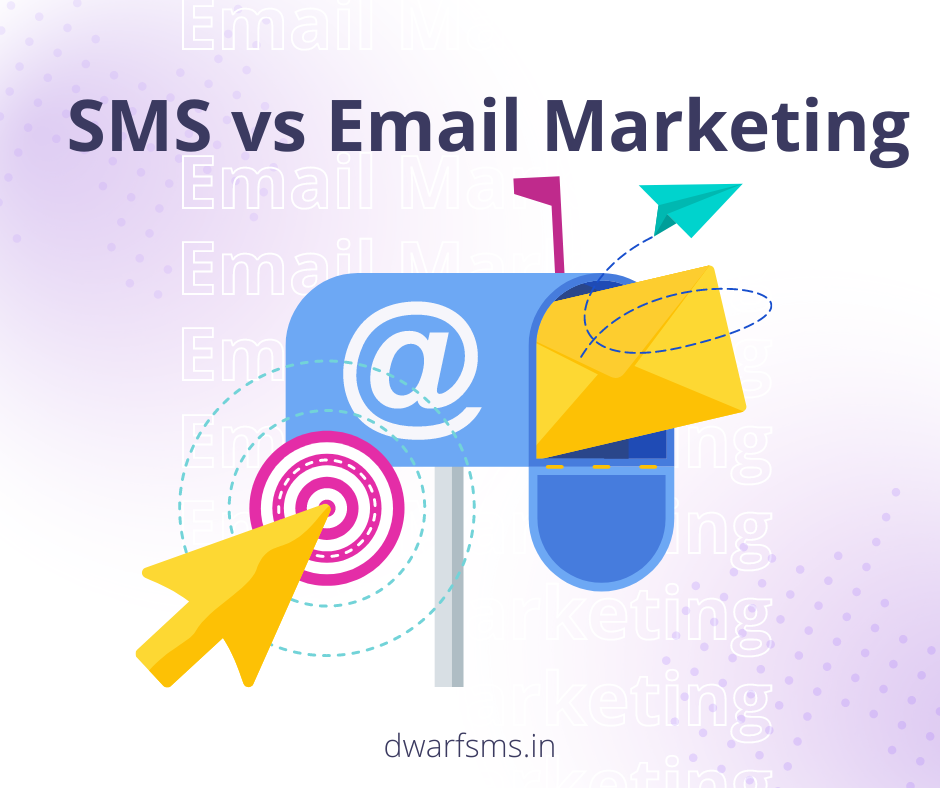
19 Jul
47
SMS vs Email Marketing: A Simple Comparison
Reach and Accessibility
SMS Marketing:
- Widely Used: Almost everyone has a mobile phone, making SMS a very direct way to reach people.
- Quick Response: People usually read texts within minutes, making SMS great for urgent updates and quick promotions.
- No Internet Needed: SMS works without the internet, so it’s accessible even in areas with poor internet access.
Email Marketing:
- Commonly Used: Most people have an email address, but they check their emails at different times.
- Internet Needed: Requires an internet connection, which can be a drawback in some cases.
- Professional Use: Email is often used for formal communications and detailed messages.
Engagement and Readability
SMS Marketing:
- High Open Rates: Texts have high open rates, often over 90%, because people read them quickly.
- Short Messages: Limited to 160 characters, so the message must be clear and concise. This can be both good and bad.
- High Engagement: The short and urgent nature of SMS can lead to quick responses.
Email Marketing:
- Detailed Content: Emails can be long, allowing for more detailed information.
- Variety of Content: You can send newsletters, promotional offers, surveys, and more.
- Design Options: Emails can include images, videos, and links, making them more engaging.
Cost and ROI (Return on Investment)
SMS Marketing:
- Cost Per Message: Sending SMS can be more expensive per message than email.
- High ROI: Despite the higher cost, SMS often has a high return on investment, especially for urgent promotions.
Email Marketing:
- Cost-Effective: Email marketing is generally cheaper, especially for large lists. Many email platforms offer different pricing based on the number of subscribers.
- Automation: Email tools allow for automated and targeted campaigns, which can increase ROI.
Personalization and Customization
SMS Marketing:
- Personal Touch: SMS feels more personal and direct since it goes straight to someone's phone.
- Limited Customization: You can personalize texts with names or details, but the character limit restricts how much you can customize.
Email Marketing:
- Advanced Personalization: Email tools offer strong personalization features, like content that changes based on user behavior.
- Segmentation: Emails can be highly targeted to different audience groups.
Compliance and Deliverability
SMS Marketing:
- Strict Rules: SMS marketing has strict rules to prevent spam, requiring explicit consent from recipients.
- High Deliverability: If you follow the rules and use a reputable service, your messages will likely be delivered.
Email Marketing:
- Spam Filters: Emails can get caught in spam filters, affecting delivery.
- Regulations: Email marketing also has rules like GDPR and CAN-SPAM, but allows more flexibility in content.
Choosing the Right Strategy
When to Use SMS Marketing:
- Urgent Updates: For quick promotions, alerts, and reminders.
- Personal Offers: To send personalized discounts or special deals.
- Event Notifications: For event reminders and real-time updates.
When to Use Email Marketing:
- Detailed Content: When you need to provide a lot of information, like newsletters or product updates.
- Regular Contact: For maintaining regular communication with your audience.
- Lead Nurturing: To build relationships with potential customers over time.
Conclusion
Both SMS and email marketing are effective in different ways. SMS is great for immediate, personal communication, while email is better for detailed and regular messages. By understanding the strengths of each, you can create a marketing strategy that uses both tools to achieve your goals.
✖

